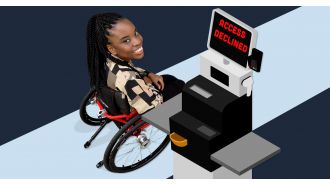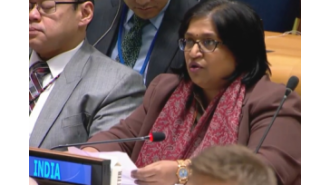Get info on housing proposals & costs in Colorado's ballot
In Colorado, many people are constantly concerned about affording rent and homeownership.

For many people living in Colorado, one of the biggest concerns is trying to figure out how to afford rent or a mortgage. It's a constant worry that weighs on the minds of many, and it's not always clear if owning a home will ever be within reach.
As the cost of housing has continued to rise throughout the state, it has become a hot topic among politicians and voters alike. According to the Common Sense Institute, home prices in Colorado Springs have increased by a staggering 119% since 2015. In the Denver area, the average home sale price has reached $617,000 this year, up from $304,000 a decade ago.
The rising costs and housing shortages have become a top concern for more than 7,000 people who participated in the Voter Voices survey organized by multiple media outlets in Colorado, including The Denver Post. While the cost of living in general was a common concern, housing was a recurring topic among respondents.
The increase in housing costs can be attributed to the growing population in Colorado, which has led to a mismatch between supply and demand. This has not only affected homeowners, but renters as well. In Denver, the median monthly rent has gone up by 82% between 2009 and 2021, reaching a staggering $1,554. This is one of the steepest increases in the country during that time period.
If housing costs and development are important issues for you, it's important to consider their impact when voting in the upcoming election. Here's a breakdown of how the presidential, congressional, state legislative, and local government races could potentially address this issue.
Presidential Race:
Both candidates have proposed ideas to lower housing costs. The president has the power to make regulatory changes, as well as work with Congress to pass legislation, tax breaks, and incentives related to housing.
Vice President Kamala Harris' housing plan includes a proposal to offer $25,000 in down payment assistance for first-time homebuyers. However, some critics have pointed out that this won't necessarily address the shortage of starter homes on the market. Harris also plans to introduce tax incentives for builders who focus on affordable housing and wants to increase funding for programs that support local governments in their efforts to create affordable housing.
On the other hand, former President Donald Trump's housing plan is less specific. He has blamed the recent surge in immigration for driving up housing costs and believes that mass deportations will help bring down rents. However, economists have disputed this claim, warning that it could also have a negative impact on the construction labor pool needed to build homes. Trump has also proposed building 10 "Freedom Cities" on federal land, although details of this plan are still unclear.
Congressional Races:
Many of the proposed housing solutions from the presidential candidates will require the support of Congress. In Colorado, Republican and Democratic congressional candidates have different views on the cause of the housing crisis and how to address it. Republicans tend to blame federal spending for driving up inflation, while Democrats believe in using federal funding and tax incentives to support the construction of affordable housing.
State Legislative Races:
Housing has become a major topic for Colorado's legislature in recent years, with efforts to pass property tax relief and zoning requirements for local governments to encourage more density and lower costs. Candidates for the state legislature have been debating these moves and proposing further actions to address the issue. The Denver Post has published their responses in the online voter guide.
Local Governments:
Housing development policies, such as zoning, are largely determined at the local level. While many cities do not have municipal races this year, several counties in the metro Denver area have county commission seats on the ballot. The Denver Post has asked these candidates about their plans to improve affordability for their county residents in the online voter guide.
Ballot Measures:
In addition to the candidates, voters in several Colorado communities will also have the opportunity to vote on housing-related ballot measures. In Denver, Ballot Issue 2R proposes a sales tax increase to support affordable housing construction and programs. Adams County has a similar measure, Ballot Issue 1A, which also proposes a sales tax increase for affordable housing. There is also a statewide ballot measure, Amendment G, which aims to expand property tax breaks for veterans. In 2022, Colorado voters passed Proposition 123, which dedicates around $300 million annually to affordable housing efforts in the state.
Stay informed about Colorado politics by signing up for our weekly newsletter, The Spot. Your vote matters, so make sure you understand where the candidates and measures stand on the important issue of housing affordability.










